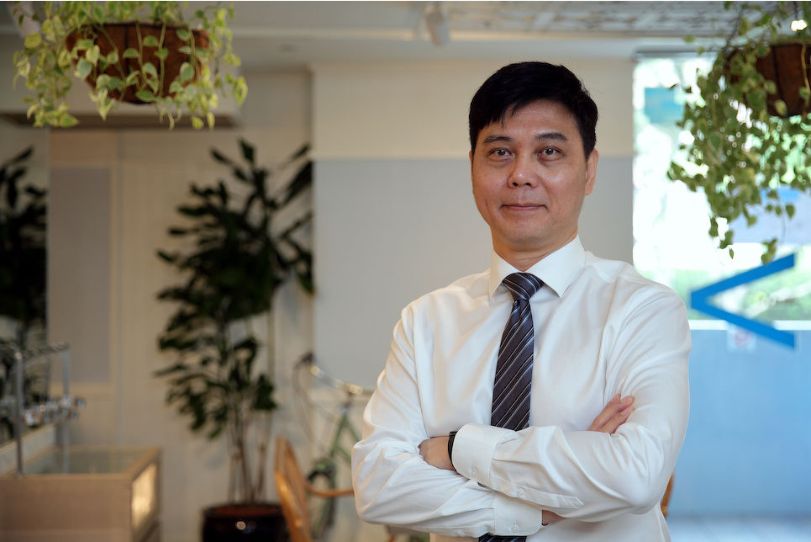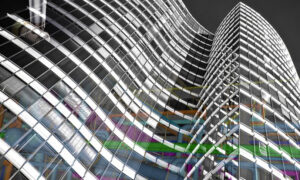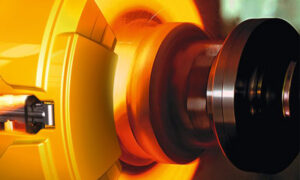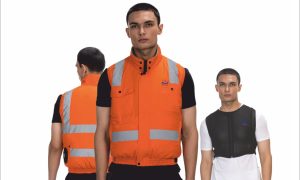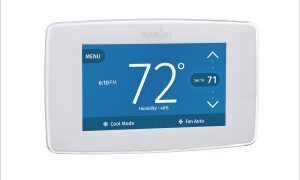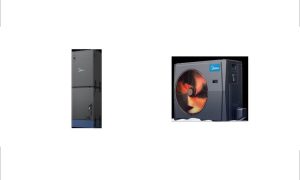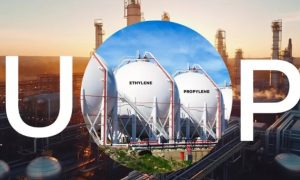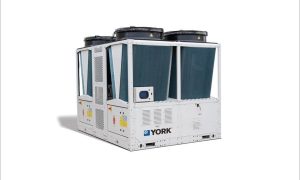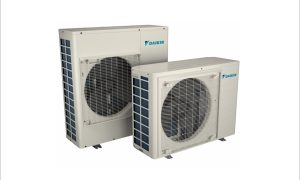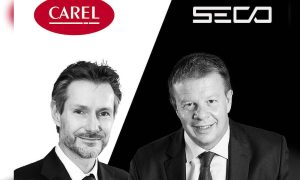Trane Technologies Asia Pacific advances development of climate-resilient infrastructure at World Climate Forum Asia.
Trane Technologies, a global climate innovator, took the stage at World Climate Forum (WCF) Asia 2021. Sin Yew Cheng, vice president of Mature Market HVAC business for Trane Technologies Asia Pacific, participated in the panel session Building Climate Resilience: Embracing Innovations for Decarbonized Infrastructure, which included an in-depth discussion with executives from International Energy Agency, Infrastructure Asia under the Singapore government, and Resilient Cities Network.
During the panel, Sin Yew highlighted how Trane Technologies creates green and lower carbon buildings with innovative technologies and strategic partnerships, advances the development of climate resilient infrastructure, and how the company will meet its bold 2030 Sustainability Commitments.
This is the second consecutive year that Trane Technologies has participated in the WCF Asia event. This year, the company’s participation includes four themed events around the world, including WCF Europe in June, WCF North America and WCF Asia in September, and the World Climate Summit/ Investment that will take place in November during the United Nations 2021 Climate Change Conference, COP26, in Glasgow, Scotland.
Gigaton challenge to meet sustainability commitment
Today, 15 percent of the world’s carbon emissions come from heating and cooling buildings, with heating, ventilation and air conditioning (HVAC) accounting for more than 40 percent of a commercial building’s total energy use. The global demand for HVAC is expected to triple by 2050. There is an urgent need for systematic sustainability actions across industries and society to make infrastructure, including buildings, lower carbon and energy efficient, and resilient to the impact of climate change.
In 2019, Trane Technologies announced its 2030 Sustainability Commitments, including Leading By Example by achieving net carbon neutral operations in our own global footprint and the Gigaton Challenge, a pledge to reduce customer carbon emissions by one billion tons (the equivalent of two percent of the world’s annual emissions). This includes reducing emissions from its own products and services by nearly 50 percent by 2030. It is an ambitious target based on a wealth of facts and data, which has been validated by the Science Based Targets initiative (SBTi) aligned with climate science.
“As a climate innovator, we are providing solutions to reduce greenhouse gas emissions in HVAC,” said Sin Yew. “The Gigaton Challenge is not only a big challenge we pose to ourselves and our customers, but also a part of our journey to respond to the escalating challenge of climate change.
To achieve this bold Gigaton Challenge, we have developed a set of three innovative initiatives focusing on HVAC solutions, including refrigerant transition management, addressing system-level energy efficiency, and accelerating electrification of heating and refrigeration. These initiatives will help to comprehensively reduce greenhouse gas emissions from heating and air conditioning systems.”
Trane Technologies has been leading the way of refrigerant transition for many years by developing HVAC solutions applying the next-generation low GWP refrigerant for buildings. This effectively guided the HVAC industry to transfer to chillers applying lower GWP refrigerant. Today, Trane Technologies next-generation chillers have been widely used in more than 30 countries. Although most of these countries do not have regulations on the phase-down of high GWP HFC refrigerants in place, Trane Technologies has made itself ready for greener and more energy-efficient building solutions. The company is also pioneering new ways to encourage the collection and destruction of the old high GWP refrigerant gases that are removed from these systems or sitting in containers no longer being used so as to further mitigate the environmental impact.
The company’s controls paired with building automation help to vastly reduce or even eliminate energy waste, while driving down the emissions intensity of a building or home. To accelerate the electrification of heating and refrigeration solutions, Trane Technologies already has efficient electrified products on the market, such as the dual-supply household air source heat pump system, to deliver heat for buildings and homes. Trane Technologies’ experts can also design custom systems to maximise efficiency and effectiveness of heating systems that reduce fossil fuel use.
Collaborating to advance the decarbonised infrastructure
“A core tenet of Trane Technologies’ sustainability strategy is partnering with our stakeholders to minimise our environmental impact,” said Sin Yew. “We hope to see more businesses join us. Ultimately, we can change an industry, and an industry can change the world.” Trane Technologies has also joined a number of important sustainability pledges and coalitions. This includes a commitment to RE100 and EP100 (100 percent Renewable Energy and 100 percent Energy Productivity), the U.N. Environment Cool Coalition, as well as the United Nations Framework Convention on Climate Change (UNFCCC) Race to Zero international campaign to meet net-zero global emissions by 2050 for a healthy, resilient, zero-carbon recovery.
Cookie Consent
We use cookies to personalize your experience. By continuing to visit this website you agree to our Terms & Conditions, Privacy Policy and Cookie Policy.

